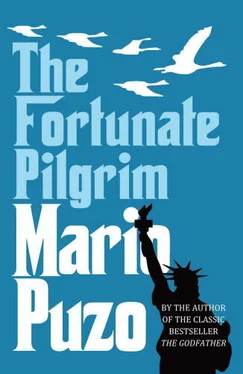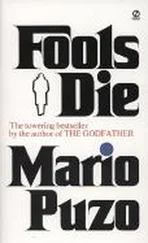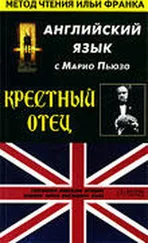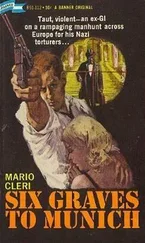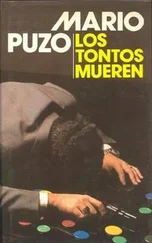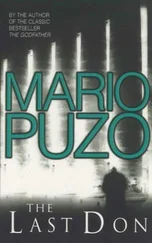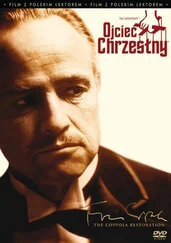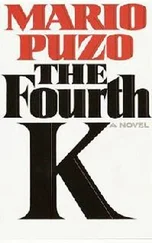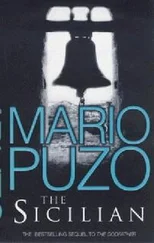LARRY ANGELUZZI (ONLY his mother called him Lorenzo) thought of himself as a full-grown man at seventeen. And with justice. He was very broad of shoulder, medium tall, and had great brawny forearms.
At thirteen he had quit school to drive a horse and wagon for the West Side Wet Wash. He had complete responsibility for the collection of money, the care of the horse, and the good will of the customers. He carried the heavy sacks of wash up four flights of stairs without loss of breath. Everyone thought him at least sixteen. And the married women whose husbands had already gone to work were delighted with him.
He lost his virginity on one of these deliveries, cheerfully, with good will, friendly as always, thinking nothing of it; another little detail of the job, like greasing the wagon wheels, half duty, half pleasure, since the women were not young.
The job of dummy boy, riding a horse and leading a train through the city streets, appealed to his heroic sense; and the money was good, the work easy, and advancement to brakeman or switchman possible—these were excellent jobs for a lifetime. Larry was ambitious; he wanted to be a boss.
Already he had the mature charm of the natural-born lady-killer. His teeth flashed pearly white when he smiled. He had strong, heavy, regular features, jet-black hair, and long black eyebrows and eyelashes. He was naturally friendly, always assuming that everyone thought well of him.
A good son, he always gave his mother the pay he earned. True, he now kept some money for himself, stashed it; but after all, he was seventeen and a young man in America, not Italy.
He was not vain, but he loved riding up Tenth Avenue on his black horse, with the freight train coiling slowly behind him while he swung a red lantern to warn the world of danger. There was always a surge of joy when he rode under the iron and wooden bridge at 30th Street and entered his own neighborhood village, making his horse prance for the children who waited for him and for the engine with its white cloud of steam. Sometimes he would halt his horse near the curb and the young people would gather round, begging for a ride, especially the girls. His brother Gino always looked up like a connoisseur admiring a picture—not too near, one foot in front of the other, head slightly back, leaning away, admiration shining in his eyes; he was so worshipful of his brother riding a horse that he never even spoke.
And yet, though Larry was hard-working, quite responsible for such a young man, he had one fault. He took advantage of the young girls. They were too easy for him. Angry mothers brought daughters to Lucia Santa and made ugly scenes, shouting that he kept the girls out too late, that he had promised to marry them. La la. Famous for his conquests, he was the neighborhood Romeo, yet popular with all the old ladies of the Avenue. For he had Respect. He was like a young man brought up in Italy. His good manners, which were as natural as his pleasantness, made him always ready to help in the countless mild distresses of the poor: he would borrow a truck to help someone move to a new tenement, visit for a few moments when an elderly aunt was in Bellevue Hospital. But most important of all, he took part with a real zest in all the events of communal life—marriages, funerals, christenings, death watches, Communions and Confirmations; those sacred tribal customs sneered at by young Americans. The old women of Tenth Avenue gave him their highest praise; they said of him that he always knew which things were really important. In fact, he had been offered an honor that no Italian could remember being given to so young a man before. He was asked to stand godfather to the son of the Guargios, distant cousins. Lucia Santa forbade it. He was too young for such a responsibility; the honor would turn his head.
LARRY HEARD GINO screaming “Burn the city,” watched him run, saw the people disappear from the street into the tenements. He trotted his horse up the Avenue to the stable on 35th Street, then galloped, catching in his ears the rushing wind, the great clatter of hoofs on cobblestones. The stableman was asleep, so Larry took care of the horse and then he was free.
He went directly to the Le Cinglata home, a short block away on 36th Street. Signora Le Cinglata served the anisette and wine in her kitchen, charging by the glass and doling out her wit to the customers who drank the most. There were never more than five or six of these at a time; they were always Italian laborers, and bachelors or men whose wives had never joined them from Italy.
Mr. Le Cinglata was finishing up one of those thirty-day sentences that were a risk of his trade. “Ah, the police,” Signora Le Cinglata always said on these occasions. “They have put my husband on the cross.” She was religious.
When Larry entered the apartment there were only three men. One of them, a dark Sicilian, encouraged by the knowledge that her husband was in jail, badgered the signora, holding her skirt as she went by, singing suggestive Italian songs. There was in his actions only the innocent lechery, the childish malice, of a primitive man. Larry sat down at their table. He enjoyed a chat in Italian with older men. He returned the signora’s smile of welcome, and his ready assumption of equality offended the Sicilian.
Raising his great, heavy brows in mock astonishment, he shouted in Italian, “Signora Le Cinglata, do you serve children here? Must I drink my glass of wine with suckling infants?” The woman put down a cherry soda for Larry and the Sicilian gave all a look of excruciating slyness. “Oh, excuse me,” he said in a deferential, broken English. “Itsa your son? Youra nepha-ew? He protecta you when youra husband is ina his little hideout. Oh, excusa me.” He roared until he choked.
The signora, plump, handsome, and tough, was not amused. “Enough,” she said. “Cease or find another place to drink. And pray I do not tell my husband of your pretty behavior.”
The Sicilian said with abrupt seriousness, “Thank God if nobody tells your husband of your pretty behavior. Why don’t you try a man instead of a child?” And he struck his chest with both hands, like a singer at the opera.
Signora Le Cinglata, in no way shamed but out of patience, said curtly, “Lorenzo, throw him down the stairs.”
The phrase was extravagant and meant only that the man should be persuaded to leave, as they all knew. Larry started to say something conciliatory, a friendly smile on his face. But the Sicilian, his honor affronted, stood up and roared in broken English, “You little shitta American cockasickle. You throw me down the stairs? I eat you up whole anda whole.”
The man’s broad, bearded face was lined with authoritative rage. Larry felt a quick surge of childish terror, as if it would be parricidal to strike this man. The Sicilian loomed, and Larry threw a straight right into that huge dark face. The Sicilian fell to the kitchen floor. Suddenly Larry’s fear was gone and he felt only pity and guilt for the man’s humiliation.
For the man could not use his hands and had not meant him real harm. He had come like a hugging bear to chastise a child, grotesque, human without being cruel. Larry helped him to a chair, gave him a glass of anisette to drink, murmured words of conciliation. The man struck the glass out of his hand and walked out of the flat.
THE NIGHT WORE on. Men came in, others left. Some played Brisk with an old dirty deck of cards, a convenience of the establishment.
Larry sat in the corner, subdued by his adventure. Then his feelings changed. He felt pride. People would think of him with respect, as a man to be wary of, yet not mean or vicious. He was the hero in the cowboy pictures, like Ken Maynard, who never struck a man on the floor. He grew drowsy, blissful, and then Signora Le Cinglata was talking to him in her strange, flirting way, in Italian, and his blood leaped awake. The time had come.
Читать дальше
